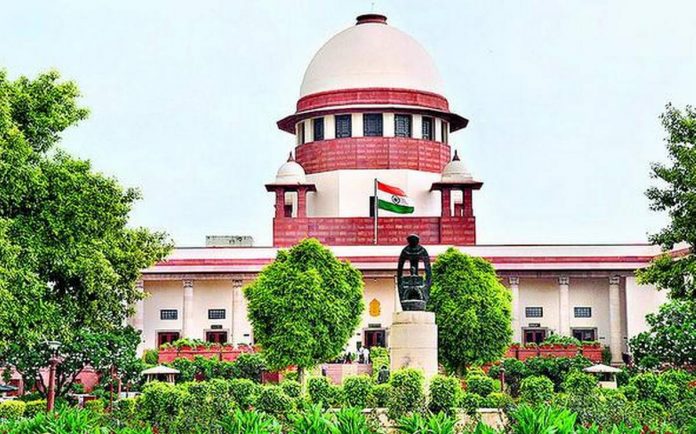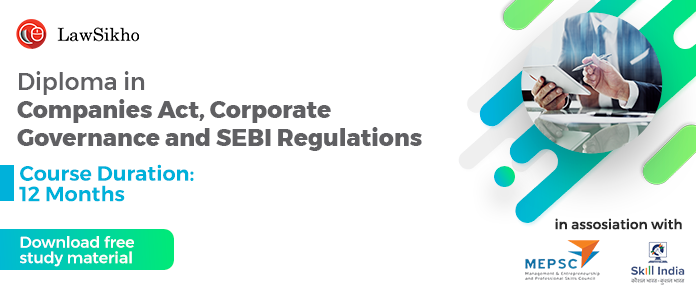This article has been written by Oishika Banerji of Amity Law School, Kolkata. This article discusses the recent Supreme Court judgment that differentiates between ‘royalty’ and ‘tax’.
Table of Contents
Introduction
In the landmark judgment of Indsil Hydro Power & Manganese Ltd. v. State of Kerala and Others (2021) Justices UU Lalit and Vineet Saran observed that ‘royalty’ is based on an agreement between parties and is linked to the advantage or privilege granted to a grantee, whereas ‘tax’ is imposed by statute without any specific benefit conferred on the taxpayer. The Court made these observations while ruling on a dispute between two Kerala firms and the Kerala State Energy Board over a royalty claim for permitting the companies to use water discharged from hydel power facilities to produce electricity for their own use. The corporations had filed a Special Leave Petition before the Supreme Court requesting the Court to reverse the Kerala High Court’s dismissal of their petitions. This article will be discussing the case in detail and the views of the Apex Court with regards to the concept of ‘royalty’ and ‘tax’.
Indsil Hydro Power & Manganese Ltd. v. State of Kerala
The Supreme Court had clarified the distinction between royalty and tax in the present case while ruling that the Kerala State Energy Board’s royalty demand for enabling enterprises to use water discharged from hydel power plants to produce electricity for their own use would not be constituting a tax.
Facts of the case
The appellants in the present case namely, Indsil Hydro Power and Manganese Ltd. (INDSIL) and Carborundum Universal Ltd. (CUMI) had businesses that required a steady supply of power. Both the appellants were Captive Power Producers (a captive power producer is someone who generates electricity for their own use). The appellants had built hydroelectric power plants in accordance with the Kerala government policy that allowed commercial agencies and public businesses to build hydel schemes for energy generation at their own expense. They were now regarded differently from Independent Power Producers (IPPs) who generate power not for self-consumption but for supply to the Kerala State Electricity Board in its totality. However, when the government published new rules exempting IPPs from paying water cess, a petition was filed contesting the imposition of ‘royalty’ as a ‘tax.’
According to the Policy, the Kerala State Electricity Board’s specifications for the building, operation, and maintenance of the hydel system were to be followed. Clause 14 of the Policy stated that “Royalty for the use of water, as well as taxes and charges on electricity generation as established by Government/Board from time to time, must be paid by the agency”. Attempts by the Board to charge a royalty or cost component for restricted water release from the two captive power producers in accordance with Clause 14 of the Policy resulted in disagreements. Separate cases were brought before the Kerala High Court by both the captive power producers to challenge the royalty demand. A Single Judge awarded them relief, but the High Court’s Division Bench had overturned the Single Judge’s decision. This brought the two power producers to approach the Supreme Court with their grievances.
Issues before the Court
- Whether the appellants’ projects are located in areas where the benefit of a managed water supply is guaranteed and may be derived
The facts on record showed that both the projects have certainly derived advantage of the controlled supply of water as contemplated in Clause 14 of the Policy. How much benefit of controlled supply of water each of the projects has received or will receive in the future would be a matter of computation and calculation. The Agreements between CUMI and INDSIL revealed that the Policy’s provisions and conditions, including Clause 14, were carefully integrated into the Agreements. Both CUMI and INDSIL were well aware that, due to their unique position, their units would undoubtedly benefit from a managed water supply.
- Whether Clause 14 of the CUMI Agreement and Clause 14 of the Policy which stood incorporated into the respective Agreements could be termed to be unconscionable and/or manifestly arbitrary
The concerned Agreements were reached after extensive debate and with the assistance of legal counsel for both CUMI and INDSIL. It cannot, therefore, be maintained that CUMI and INDSIL had less bargaining strength or were so fragile that they were obliged to accept such terms by force of circumstance. As a result, neither the relevant Clause in the CUMI Agreement nor the elements of the Policy that were adopted in the individual Agreements can be described as unconscionable. Both CUMI and INDSIL were given permission to put up their power-producing units under the Policy, and they knowingly accepted the terms. As a result, the argument that the relevant Clause would be plainly arbitrary could not be held to be justified.
- Is it legal to impose a royalty or fee on a restricted supply of water based on the absence or lack of jurisdiction and other ancillary issues
The appellants had argued that the royalties or charges for restricted water supply, in this case, would be nothing more than forcible exaction and that the Board’s acts would be without jurisdiction in the absence of any statutory justification for such imposition. The State and the Board countered that such royalties or charges had their origins in the particular contracts and that the Board’s conduct was therefore perfectly legitimate. The Apex Court observed that the regulated discharge of water made available to INDSIL and CUMI had always aided them in their energy-generating. The parties’ agreements anticipated payment of fees in exchange for the benefit or privilege conferred upon them. As a result, such charges were quite legitimate.
The distinction between CPPs and IPPs
The Court determined that there is a qualitative difference between CPPs and IPPs. CPPs generate power for personal use. Both CUMI and INDSIL being CPPs produce power for use in their factories or industrial units. If anything is generated in excess of their requirements, the surplus or extra power would be accepted by the Board under the terms of their agreements. The main goal and ultimate usage, however, would be self-consumption. IPPs, on the other hand, generate electricity for the purpose of the Board rather than for personal use.
The electricity generated by IPPs is fed by the Board’s grid and distributed to its customers in the same way the electricity generated by the Board’s producing units or power plants is. If rates for regulated water supply were enforced universally for CPPs and IPPs, the impact would be that energy delivered through IPPs to common users and the general public would have to bear an additional weight or load for proportional water charges. In these circumstances, a decision by the Board not to apply Clause 14 of the Policy to all IPPs would not be considered discriminatory.
The bench noted that the differentiation or classification made was based on a clear logic, with the goal of lessening the additional burden placed on consumers. Because the power generated by CPPs would be self-consumed, there would be no need to impose any final or consequential burden on the general public. The grounds for such differentiation or categorization were proper, and the Division Bench of the High Court correctly addressed this question against CUMI and INDSIL, as observed by the top Court.
Supreme Court’s viewpoint on difference between ‘royalty’ and ‘tax’ in other cases
While deciding the case of India Cement Ltd v. State of Tamil Nadu & Ors (1990), the Supreme Court of India had laid down that royalty was a tax. Over the next decade, this ruling affected several high courts and Supreme Court decisions, resulting in a drastic change in judicial thinking on the subject as to whether ‘royalty’ and ‘tax’ are synonyms or antonyms of each other. In 2004, the Supreme Court while deciding the case of The State of West Bengal v. Kesoram Industries Ltd. and Ors disagreed with its decision in the aforementioned case stating that the decision was a typographical error and as the Court had “constitutional, legal and moral” obligation to rectify the said error, it decided that royalty was not a tax. It is to be noted that while deciding the case of The State of West Bengal v. Kesoram Industries Ltd. and Ors (2004), the Apex Court could not reverse its earlier decision made in the Indian Cement case owing to a smaller bench in the former case as compared to the latter. Therefore, a nine-judge bench was constituted by the top Court who in an order passed on 30 March 2011 adopted the fact that royalty was not tax and that both are different from each other.
Judgment delivered by the Court
Rejecting the submissions that were advanced by the appellants in this present case, the Supreme Court of India relied on the observations made by Justice Banumathi in the case of Jindal Stainless Limited and Another vs. State of Haryana and others (2017) while distinguishing between ‘royalty’ and ‘tax’, which are as follows:
- The term ‘royalty’ has always been seen as compensation given for the grantee’s rights and privileges, and it usually has its origins in the agreement between the grantor and the grantee. Whereas, a ‘tax’ is levied by the statutory authority without regard to any unique advantage that would be given to the taxpayer. The royalty would be determined by the parties’ agreement and would usually be proportional to the benefit or privilege granted to the grantee.
- A ‘tax’ is a legally enforceable and obligatory exaction of money by a public body for public purposes. It is not remuneration for services provided. Whereas, in a deed, the term ‘royalty’ is used in a broad meaning to express the obligation to make periodic payments to the assignor for the duration of the lease.
- The essential traits of a ‘tax’ are provided hereunder;
- The essence of taxation is a compulsion, that is to say, it is imposed under statutory power without the taxpayer’s consent and the payment is enforced by law.
- A tax is imposed for a public purpose without regard for any specific advantage to be given to the taxpayer. This is indicated by stating that the tax is imposed for the purpose of generating general income which once collected, becomes part of the state’s public finances.
- As tax is a shared burden, the amount imposed on the taxpayer is normally determined by their ability to pay.
The appellants’ argument that the charges levied were compelled exaction and so adopted the features of a tax was dismissed by the Court for being wrong and unsustainable. It was held to be a straightforward contractual connection between the parties, and the Division Bench was correct in dismissing CUMI and INDSIL’s arguments.
- While there is a complete absence of ‘quid pro quo’ (consideration) in the case of ‘tax’ between the taxpayer and the public authority, the scenario is just the opposite when it comes to ‘royalty’.
The Supreme Court of India found that the demand in the current instances cannot be deemed to be constituting a tax while taking into consideration some notable precedents surrounding similar circumstances.
Conclusion
The observations made by the Supreme Court of India in the well-known case of Indsil Hydro Power & Manganese Ltd. v. State of Kerala and Others (2021) is essential as it clarifies the differences existing between ‘royalty’ and ‘tax’. Eliminating the confusion, the Court provided a valid judgment in this present case thereby setting a good precedent to be followed by courts across India.
References
- https://www.scconline.com/blog/post/2021/09/08/kerala-electricity-board/.
- https://lawtrend.in/what-is-the-difference-between-tax-and-royalty-explains-supreme-court/#:~:text=The%20Court%20 held%20that%20the,cannot%20be%20considered%20a%20tax..
- http://kluwertaxblog.com/2021/03/24/indias-supreme-court-finally-settles-a-two-decade-old-dispute-on-software-taxation/
Students of Lawsikho courses regularly produce writing assignments and work on practical exercises as a part of their coursework and develop themselves in real-life practical skills.
LawSikho has created a telegram group for exchanging legal knowledge, referrals, and various opportunities. You can click on this link and join:
https://t.me/joinchat/L9vr7LmS9pJjYTQ9
Follow us on Instagram and subscribe to our YouTube channel for more amazing legal content.
 Serato DJ Crack 2025Serato DJ PRO Crack
Serato DJ Crack 2025Serato DJ PRO Crack











 Allow notifications
Allow notifications


